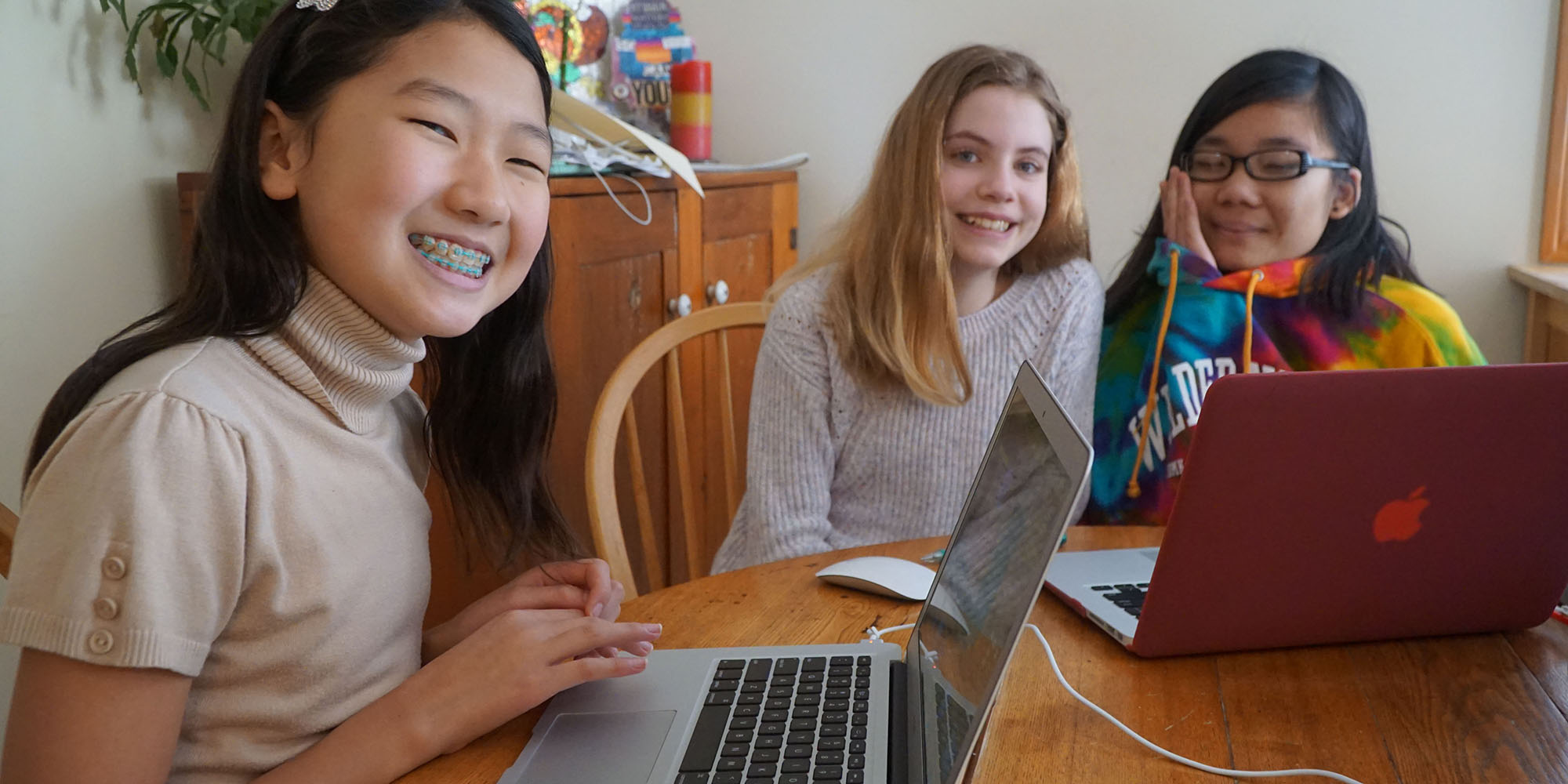Alice Offers Creative Entry Into Coding
By Heidi Opdyke Email
Media InquiriesSciGirls, an Emmy Award-winning PBS KIDS TV show, recently aired an episode where students learned to code to promote social justice.
The platform they used, called Alice, was created at Carnegie Mellon University and is free for students and educators to download. Alice is an object-oriented, open source system that features a drag-and-drop interface that allows users to create 3D-animations, stories and video games.
"Our production team recognized Alice as a great tool for our girls to create an animated short film, plus a welcome opportunity to model the use of high-quality, accessible and free educational software for our viewing audience," said Angie Prindle, SciGirls series producer. "We consulted with Alice Curriculum Specialist Don Slater early in the process and he shared information and encouragement that supported us during development."
Prindle said Alice was one of several programming options the team considered, and the girls in the episode, Kanah, Margaret and Eh Lay selected Alice to use.
"They loved the realistic style of art, the character customization options and range of movement capabilities in 3D," Prindle said.
The girls also met Alice Project Director Eric Brown, who was in Minneapolis, where the show films, for a conference. Both SciGirls and the Alice project have received funding from the National Science Foundation.
"Eric celebrated the girls' achievements and encouraged them on their path — which connects to our mission to empower girls everywhere to be creators — and not just consumers — of technology," Prindle said.
This animation was made by three middle school girls from Saint Paul, Minnesota, to illuminate STEM (Science, Technology, Engineering, and Math) Justice, a movement to redefine STEM as a tool to dismantle systems of oppression. The project was highlighted in an episode of SciGirls.
Brown said that he was excited to see Alice used to create projects and animated shorts on social issues.
"This could be a great time to create animated movies about social distancing and share stories of community action during a pandemic," said Brown, of CMU's Entertainment Technology Center.
The software, which does not require an internet connection once it is downloaded, has been implemented in the United States and countries in Asia, South America, Central America, Europe and the Middle East for more than 20 years. Brown said that CMU in Qatar has been doing lots of great work with Alice in the Middle East, and the Oracle Academy offers free materials, workshops and community outreach.
"We have exciting partnerships that help us reach broad audiences around the globe such as the work of the Omar Dengo Foundation that has been running a pilot with 40 schools in Costa Rica with plans to roll out Alice to every high school student in the country," Brown said.
West Virginia teacher Carolyn Thomas understands the appeal of Alice. High school students in her "Coding, App, and Game Design" course at James Rumsey Technical Institute use the platform as part of their coursework as well as earn certificates in Alice through Coursera and Duke University, an Alice Curriculum partner.
"Alice provides a good foundation for programming and animation," Thomas said. Jobs that apply those skills include work such as web and application development, game design and project management.
One assignment from earlier this year directed students to create short races. The platform allows for users with little or even no programming experience to create rich animations while challenging users to learn more complex programming patterns to build engaging games and interactive worlds.
The late Randy Pausch, a CMU computer scientist famous for his inspirational "Last Lecture," led the development of Alice at the School of Computer Science. Named after Lewis Carroll's main character in "Alice's Adventures in Wonderland," the tool is designed to make computer programming easy and fun.
Advanced users also can use Alice to begin the transition to text-based programming using advanced features that including Java and exporting to NetBeans. Virtual reality functionality is in beta testing as well.
"If you have access to VR hardware and want to create your own content now is the time to be using Alice," Brown said. "We would love your help in testing and improving this new and exciting functionality."
Along with the NSF and Duke, Alice has tremendous additional support from donors and partners including Electronic Arts and Oracle, who most recently committed to another year of funding.
“We are excited that Oracle Giving has continued its commitment to Alice. They have provided strong support for the project dating back to 2007,” Brown said.

